|
I dream I’m in a temple built on top of the root of a mountain. The mountain itself is magnificent far beyond human scope, but the temple is ugly, both physically and in the way it lays claim to something it cannot own. The temple is concrete angles and artificial pools, boundaries that don’t really exist, and hierarchies that cause people to forget that we are all equally of the mountain. I live in the temple for its proximity to the mountain, and at the same time, love tells me the mountain and the temple aren’t the same thing. The temple-keepers sense I don’t believe their claims, and in the end, I have to leave. This is absolutely not the first time. It happens over and over again. In every temple from beginningless time until now, there are those who know the underlying landscape, and love it, and have to leave.
Now I am in an orchard from which I can see the whole mountain and its many roots, some of which have temples squatting on top of them, and some not. A dancer comes to me in simple, beautiful undyed linen clothes. A martial arts suit, a worker’s suit, rippling with hand-written poetry, truth, and praise. She has rainbow-fans behind her ears, and she wears tai chi pilgrim’s shoes, with miles and miles inside them. She sits down beside me and shows me how to shuck, crack open, and sort the walnuts that fall from the trees. The empty and rotten ones go there, and the good ones go here. Deft, steady, ongoing, she can do this without me, but teaching me is essential and effortless to her nature. We work side-by-side, sorting quietly, enjoying one another. I wake from the dream knowing SHE LOVES ME. This SHE LOVES ME propels me as ecstatic joy. From SHE LOVES ME I can do anything. Under the cloud-hidden moon I sweep snow and ice from a whole parking lot’s worth of sleeping people’s cars. From SHE LOVES ME I reenter the world. I live. I dance alone and with temple-keepers and with those who would never dream of entering a temple. This dream was maybe five years ago. Since then, I’ve lived so many lives. I’ve become a therapist, which I understand to be an orchard-dancer’s job. I’ve taught retreats in orchards and in other places that flicker and waver. Are we an orchard? Are we a Temple of the One True Way? In any kind of role, this flickering will be familiar. If we show up very much wanting to have found a faith expert to lead us, we will not be delighted to be handed a smooth stone, a flat stone, and a basket of messy-hulled nuts to sort. If we think love and beauty are irrelevant to the arduous spiritual work of owning the truth, we won’t think much of the orchard-goddess. Fetch me some tea, woman. I am waiting for Roshi to notice me. For His Holiness’s blessing. For the transmission of the Mountain Root Teachings. A friend says, “I could open my own school,” and I hear her. She could. She absolutely could, and that would answer some need or call to connect, to be useful, to be recognized, to channel the mountain into one of its roots, and contain it. I feel this call keenly myself sometimes. It’s how you show you’re serious, in this culture. I am so bursting with mountain-teachings that you simply must come to me to get them. You must read my book. You must take my online course. You must go on my retreat. You must enter this temple I have built. Anything else means you don’t know enough to lead. You don’t have anything to say. The dancer in the orchard doesn’t have anything to say. Her whole being is speaking forth in movement, in discernment, in generosity of teaching, in beauty embodied without needing self-reflexive affirmation. She’s there and she shows the way to sort. I listen, I learn, and find I am sorting, too. She never says, You must read my book, and because of this, I know SHE LOVES ME. Rivers run red with the blood of mass-slaughtered, maybe-deathly pigs. The blood runs towards the capital. Is it ill? Is it not-ill? The pigs’ bodies are piled into trucks that dump them deep in the mountains. Each pig is a mountain, an orchard, a transmission, but we don’t have time for that now, because the temple and the capital need to be assured of their safety. The temple’s safety, and the capital’s, depend on being distanced from rivers of blood. Who comes to teach the pigs to sort the empty from the rotten from the good? The pigs have always already known this. I want to be paid to speak. I want to teach in ways that always point to the mountain as source, and not to my special method® or reverend lineage. I want at the same time not to disappear. Here I am. You are right: I am a born teacher, but not of the ways to disappear yourself into my regard. I want to embody sorting and beauty, knowing and dancing, so that people remember their own mountain-roots, shared with the bodies of pigs in trucks. I want space for the pigs to graze in the mountains, remembering the wisdom of sharp hooves and hairy snouts rooting into rich soil. I want to live in a suit made of undyed linen (which might mean thrift-store sequins), to dance the texts of my belief, to breathe YES, NO, EMPTY, the one bright pearl, the bright moon shining inside and through and onto everything. Protesters take apart and burn the campus where I taught a quarter of a century ago. Police block them. The buses that took us up and down the mountain are used as barricades. Does anyone in that landscape know She loves them? The empty, the rotten, the good. It’s clear to me these seeds were planted long ago: strifeweed, lossweed, greedweed. Temples of power and violence built from the smooth leaving of those could go somewhere else, like me. These protesters and police officers could easily be the children of my students, whose own parents couldn’t buy exile into larger, safer places. They are looking for ways to build new structures on the roots of What Is. They are looking for the orchards still growing at the edges of the burning barricades. Years ago I had a dream that reshuffled the ambiguities of my childhood – Am I good? Am I bad? Am I empty? – and gave me permission to embody beauty, love, precision, patience, and strength. These are still the qualities I need. On a ten-degree morning when pigs’ blood flows towards the capital and school-buses burn, I remember that my pen is a tool for sorting, and after many months of silence, I write. Acid-washed jeans.
Acid thrown in the face of someone who wanted to leave, to learn, to show herself in the world. Acid on bulimic teeth. Acid on little paper tabs. Put one on your tongue in the bathroom, near where you once brushed past the ouija board’s lurkier entities. Acid reflux. Acid ants. Acid jazz. Acid green. Seafoam green. Little-sprouts green. All the 99 Beautiful Names of Green you’re praying in the interim between when Spring feels possible, and when it actually arrives. Go to the thrift store and try on new skins to molt into: silk skins, sequin-skins, skins of parties past and small revolutions yet to come. As the lead roof of Notre Dame melts in rivers down the inside of its stone walls, unknot the scarf whose beauty someone forgot to notice. Try it all on. Slit the old and make new pockets out of scraps and sleeves. Find a way. Acid brightens and dulls. Change the frame, change the meaning. Check in with the parts who’ve given up and the parts who worry anything other than surrender invites disaster. Acid gleams the tarnish away. Acid sharpens the taste of this bland old sauce. Balsamic vinegar and lemon juice. Mirin, cider vinegar, tart oxalis greens and sorrel. Cut through same-same to different. Turn towards, turn away. Notice the keen edge of change. I eat two pieces of toast, drink some tea, then start asking the Tarot cards. Tell me about X. Tell me about Y. There’s a lot of acid in these cards. Skanky swords and shattered glasses, rats shitting in wine cups, a sorrowful horse, a bull’s corpse skewered through with grief. These images don’t fuck around: they say there are ways that come out of ruin and head straight back into it. Stagnation and betrayal and self-betrayal are all real. Don’t pretend not to know what you know. The acid in the card says, No. Says, Beware. The acid in the cards says, There is a way, and this is not it. The acid in the cards makes the sweetness more noticeable, the effort required to keep going more pleasurable. Sure, this will be a lot of work, but I can do it with the help of others. Sometimes the keenness of the sword yields insight and new space. Acid jaws. Acid buttons. Acid belly. Acid dreams. This breath, this acidic taste in the mouth, from maple syrup chai. Acid commentary: not for me, not so early, not before I’ve first taken time to realize where I am and what is up. Acid bleaches, melts, brightens. Acid hurts, cleanses, reveals. The shine of clean teeth. The gleam of clean bones. The splendor of mossless marble slabs in the sun. I walk in galoshes and seek out places where mud reaches halfway up my calves. I walk through puddles to bring back the orange shine of plastic. Mud walk, quicksand, rivulets of snowmelt pouring under what’s left of permafrost. Raven feathers on soggy pine needles. The dogs charge up the trail, paws sinking and re-finding footing where they can. Everything is provisional, forming itself into patterns that will last through the seemingly stable summer. Holes and creekbeds. Mud-flats and vernal pools. Frogs croak like ravens, but aren’t. Acid rain. What will happen to the lead fumes and cathedral ashes over Paris? Will they accelerate the melting of other buildings around the city? Timber-sludge. Gargoyle-bits. Yesterday I watched in horror as the spire fell, as the roof burned, as the whole edifice went from same-same-of-course to defunct hero, then came back as the gutted, burning heart of the world. Blackened. Firewater leaching down into new puddles, riverine. Some cathedral-ruin creatures will find opportunity here. Someone with a stiff-soft brush will be cleaning stones for lifetimes. Acid-wash. Acid-prevention. Acid-induced. Maybe they will put up a Quonset hut there? Maybe the heart of the city will be off-limits for many years. Maybe it will need to move elsewhere for a while. The stories about visiting. The old, acid-eaten photographs. The carefully antacid paintings. We make our stories new each moment. This culture knows how to make marks on the world, and few of them are majestic. Stop frittering for a while and build something you care about. Stop being only-selved and see what your hands can build with others. Voices rise in beautiful discord. Bodies move in collaboration, shifting rubble into form. Cleaning bricks is like this: shift the pile from one end of the yard to the other, chiseling old mortar off in great dusty chunks. You are the acid, eating off what’s not needed anymore. It falls away. The neat stack on the far side promises new growth, unimpeded by ruin. Someone will be cleaning cathedral-stones for a long time. Relic of the nave. Relic of the lead roof. Relic of the pews, of the windows melted into rivers, then stilled. Relic of our ideas of permanence. What will this generation add to the pile of fixes and wounds that is Notre Dame? We will find some version of ourselves to encode as truth. We will knit-bomb the ruins. We will crowd-source the funds. We will find a way. Acid-infused architectural plans and pelletized smoke. Acid-reversing dumpsters with high-security sensors. Acid-green jumpsuits for an international crew of workers. The sun will rise again. The sun will rise again. Bulging disks.
Bulging eyes. Bulging spandex pants. Battle of the Bulge. Bulge at the waist, at the crotch, at the site of the incision, at the intersection of old and new. Arterial bulging. Aortic bulging. Bulging trepanation, so that the injured brain doesn't squeeze itself to death inside its own tight skull-pan. Bulge of unknown material intruding into the comfortably ordinary. Bulge of inflamed tissue looking for any way out, never mind what anatomy will allow. I wake in the night with my life bulging out at seams that I have been pretending aren’t really there, or are mended, or don’t matter. Build me a seamless monument – my marching orders for years, and yet seams there will be. Seams and rifts and yearnings. I see how women are made to serve as seam-makers, making the untenable tenable. I am the Bulging Witch these days, and I want to hit everyone, which is the opposite of what women are supposed to want. (What anyone is supposed to want.) All my seams are bulging, said the Caterpillar, dissolving into undifferentiated goop. All my seams are bulging, the golden ones, the dark ones, the ones joining heaven and earth, and the ones running down the legs of my still-winter tights. Butterfly? Who knows about butterfly? My marriage-seams are bulging. My studio-seams are bulging. My if I want to see this in the world then I have to build it myself seams are bulging. My I and all beings are primordially Buddha seams are bulging. How it goes: some insight arises and it’s wickedly uncomfortable. I find a way to live into it and the heart opens a few more notches. Then some new level of seeing shows up and the work begins anew. How can I love those who turn on me, rather than face the forces that are in truth keeping them small? Saint Shulamith Firestone, pray for me. Bulging witches on your pyres and in your kitchens, pray for me. Households torn asunder by bulging women, pray for me. I wear cheetah-skin and stripes. I wear turquoise and battle-pants. I dig through piles of past performances and find five folded dollars in a handmade Tip Your Artist envelope. I burn old drawings. I dig through bulging stacks of unfinished ideas and spent gestures. I dig towards sunlight through clouds of dust and stale glitter. I become a bad citizen, giving new bulges spaces not to squeeze themselves to death. In the basement, dahlia tubers are preparing to bulge. In the asparagus bed, Queen of the Night tulips are preparing to bulge. On the trees, leaf buds are bulging. People still believe in the possibility of making new things. Some of these are stupid expensive spandex clothes or stupid expensive housepaint the color of a mouse’s back. Some of them, too, are the idea of melting two halves of a broken pair of glasses and squishing them together at the nose, into something newly, radically strong. People still believe in preventing something new from arising if at all possible. All bulges are suspect. All desires must be vetted for appropriateness and proper credentials. All possibilities must arise from correct lineages or be squashed. Fuck all that. Fuck that with big, squishy bulges. I am leaving the stuffy space of these four walls. I am walking with a lion. I am kissing all the wrong people. None of my thoughts are decorous. In the middle of the night I growl back at the dog and bulge to fill the bed and the whole world with discontent and racking tears of release. Physical therapy dislodges painful feelings long stored in a tiny room at the intersection of my skull and neck. They will never fit there again. It’s possible I’ll never be able to be anything other than a witch ever again. Goodbye, pretty lady. Goodbye, careful thinker. Goodbye, quiet despair. We have stripes and spots and boots now, and we’ve given up on the project of getting people to wake up. Have we? We’ve given up on the project of what people think, when they think, Wake up. We’re going to wake up someday soon and not need ten hours in bed to recover from fourteen hours of wakefulness in a world with little room for bulging. Bulging heart. Bulging brain, Buddha’s ushnisha. Bulging out of town, using plane tickets unofficially guaranteed to include emergency stops in Albuquerque, re-routings through Houston, and inexplicable weather-based delays. Bulging to Bethlehem. Bulging past spanx-sponsored body sculpting and decades-long projects of quiet eating disorders. The ball bulges between gleaming teeth. The bag bulges with treasure. One silk rosebud squirts out from between plastic handles. The Internet bulges with outrage at the intersection of inaction and neurotic speed. Bulges get bad press – anything squeezed that’s well-liked gets a different name. Pert. Ample. Abundant. Correctly positioned and non-threatening. I’d like to see a ninja force of truly fat, angry people taking up space in uncontained ways. The fat person on the plane with an incontrovertible license to take up two seats. I’d like to see more of this: tall, bright, angry, boisterous, dark, bright, tacky, loud. What else are anxiety and depression besides bulges squeezed down in the service of what should be, but isn’t? Is this how you want your therapist to sound? What happens when those tasked with helping us find equilibrium decide that shit is indeed fucked up and bullshit? Then what? What if being pain-free isn’t a possibility anymore? Last week my brother and I looked on while my mother met with the anesthesiologist who was about to facilitate her hip replacement. We asked and asked, and he answered and answered. In the end I asked whether one more question was OK, and he said, Sure. I said, Is there a scroll inside your pendant? And he said, It’s stylized. There can’t be a scroll in there, because it has to be able to go into the bathroom. I felt relief. Here was someone accompanying my mother into the OR who had thought about holiness and pain and the toilet and how sometimes it’s really hard to screw the plastic cap off a tube, even though that should be the easiest among the 10,000 steps. There are seams, he was saying, and while we might bulge at their edges, they keep some things sewn safely to one another, and other things safely apart. Lila, divine play, is the gods disporting themselves. Sounds rosy, till it sinks in that we all take turns being the gods, the playthings, the sandbox, and the earthworm suffocated in it.
At a young age, the school playground was one of my least favorite places. Someone was going to comment on my pale-yellow cords. Someone was going to propose kickball or dodgeball or any of the other -balls intended to form young warriors out of suburban children, except the ones like me, whose hand-eye coordination and basic tethering to this planet were somewhat compromised. My true playgrounds were books and drawing, and the dust-motes singing in the sunlit living-room window. I grew up with spacious internal playgrounds, devoid of competition. The playground-lila view of life looks up the skirts and armholes of everyone’s carefully put-together presentations, through the eyeholes and up the nose, but not in a pervy way. It sees how we try to cement things together, and how the sand in the mortar melts away with the next wave, and the next. All winter the snow disintegrates and re-forms day by day: loose, hard, shining, slick, pockmarked, tussocked, speared with branches hurled down by last night’s wind. The snow is the playground and the one being played with, and so am I, and so are the dogs. I am a person who does not believe in removing dog shit from the forest, and so I have become a snow-burial connoisseur. Powder is best and easiest, forming fluffy nests around poops of any size and consistency. Frozen shell is hardest: there’s nothing to dig up and nothing loose to pile on top. In between are endless permutations. Semi-burying turds is a symbolic act, but to me it makes the difference between I care not for this world and I know you’re not here for a turd parade. I never see anyone else’s half- or three-quarter-buried turds in the forest playground. Maybe that’s because it is a successful strategy? People are afraid to come into the woods anyway, shit or no-shit. The playground of the rich and famous. Restaurant-fulls of people in expensive knitwear and carefully coiffed toupées. In such places, a turd on the almond-green carpet might be just the ticket, but I’ve never seen it happen, even when patrons’ malteses and poodles are invited to the feast. The playground of the rich and famous is a famine, a funeral, an upholstered bidet-cover, a bunch of stiff gladioli on a marine teak table. Playground ethics? Coyote thinks that’s hilarious and goes on crunching frozen apples from her orchard perch among branches really too flimsy for her furry weight. On the other hand, Coyote wears her own suit, not strips torn off the bodies of other creatures. If you offered her a mink coat to look more rich and famous on the playground, she’d take a dump on its satin lining and saunter off in search of someone with more personality. Is the world a playground for us? Yes-no. Yes, if we look closely at what moves us, we’ll see it’s often pretty funny and we have more freedom then we thought, to live from heart-spaces deeper than thought. We need to learn to tell the difference between play and toying with. Is that hard to do? Driving to the library I listen to an old Jesus and Mary Chain song about a motorcycle: I’m in love with myself/ there’s nothing left but myself. Black leather boots, speed, racing, and a saw-blade deep inside the guitars. That kind of state doesn’t have any room for other forms of being. It squishes squirrels and isn’t sorry, runs over a woman checking her mailbox, and crashes into a perfectly good oak tree. The playground is the mind. The playground is the body. The playground depends on which permissions we work with. Yes/no/who/why Which skills do we bring and which do we lack? The yoga studio at the gym is an off-duty playground of self-torment and glee. Outside, the machine-folk toughen their buns and arms. In here I roll around like a clunky otter, and a young devotee listens to her guru tell her what to do with every breath, and an older man with a round belly grunts like a condemned prisoner. I swing my sword, go upside down to open what’s closed in my neck. She’s a mermaid whispering prayers under her breath. He knows grace is not really an option, but what he’s got is better than having nothing at all. I am in the locker room after high school swim practice. Young and silly and exhilarated, girls are shedding their suits and prancing around in thongs and bras, discovering the playgrounds of their new bodies. They’ve only had hips and breasts for a year or two, and there is so much for them to investigate in their own butt-dimples and bikini-shaves, new height, new strength, and new insights. They talk to one another packed three to a shower stall, working out the shape of their world and the possibilities they bring to it. Some of the older women, like me, are mostly annoyed with this storm of mermaids. Still, I see their communal rowdiness and wish these young women may have playgrounds without end. Before the internet, there were dragons in all the corners of the maps we could not remember or had never seen in the first place. We would leaf through our atlases and they would tell us where to find bauxite, or bananas, or uranium. They would tell us about arid and forested zones in countries that no longer exist: Rhodesia, Yugoslavia, the German Democratic Republic. Before the internet, there was inertia in print. Before the internet, there was the phone book, and even before that, there was the post coming twice a day. You could write to someone, but it was absurd to think they might respond any sooner than within the week, or the month, depending on how far all that paper had to move, and how much you were willing to pay to move it.
Before the internet, I wrote on bread bags, on postcards, on posters for regional traveling circuses featuring stoic horses. Before the internet, I would buy stamps from stately or ratty government counters, and I would drop cobbled-together collections of paper-scraps into cast-iron mailboxes or inscrutable slots in walls. I would hear them flutter or thunk down, and the rest was a long line of physical operations I more or less implicitly trusted to convey the thoughts I’d written down while sitting at a café table, or on a thin mattress in a room painted half-green, or on a train, or all of the above. Before the internet, if you wanted to find somebody, you really had to work at it. Have you seen Bohemian Rhapsody? Well, the part at the end about trying to track a lover down via a massive directory of all humans bearing the same shared name? That happened to me, too, just like it happened to Freddy Mercury. I met a pair of brothers from Yorkshire in Leh, Ladakh. I liked the older one, and so before they left to go walking over Himalayan passes back down to Manali, I kissed him on the neck. He gave me his mailing address, writing it down in the notebook I used for everything at the time. Then, that very same notebook was stolen off my little fold-down table while I was in the toilet on the Boston to New York train. I couldn’t believe it. Who would steal a stupid notebook? Actually, it was a very smart notebook, and maybe the thief could tell. Or maybe this was a serial journal-thief. Anyway, now I no longer had a way to contact the boy I had played Scrabble with in the adobe apartment of a Buddhist scholar, while Shiite exiles flagellated themselves with chains someplace nearby. I got to London to visit another friend and told her about my problem. Somehow, she knew that the thing to do was to visit the central branch of the post office. Before the internet, looking for someone named James Wilson, without any clear memory of a town name, was nuts. I was a little nuts. I went through dozens of James Wilsons, running my finger down the columns of narrow type. There! Mytholmroyd rang true and I knew I had found him. I took the train from London to Hebden Bridge, then asked the nice lady at the information office. She pointed up the road and offered to keep my backpack safe. Before the internet, people had to trust each other for directions. Before the internet, you took chances with not-knowing. I got on a night flight to Bangkok with only a book to tell me about a place where I might be able to spend the night. I knocked at midnight: yes, there was a room. Before the internet, planning and nailing everything down wasn’t possible and consequently, many more things felt like grace. Is that true? Not really. Thanks to the Internet, I’ve found families willing to put me up in Rhinebeck and Roanoke, and they’ve decided that’s an okay risk to take. What is it then? Maybe it’s that I formed my habits of trusting other people and the wisdom of the road before the internet existed. Then after the internet, I kept going. Maybe. Before the internet I read more, but then again, before the internet I was a Yale undergrad, and reading was basically what I had to do. I painted more. I spent more time feeling lonely. Are those internet-related observations? Maybe they’re just time-of-life related. I waited till I was forty-six years old to get a smart phone, and I still hardly ever use it for the internet. I value being in the space where I am, and most email is basically annoying. I look around and notice someone has stuck a piece of green tape on the back of their jacket. I think about not-much or run around checking things off the made-up list of projects that I generate every day. Before the internet there was TV and that was way worse, until The Simpsons came along and sort of started digesting the medium from the inside out, like a strange and brilliant parasite. Twin Peaks was another parasite, feeding on a different part of the bloated organism that had gotten away with Benson and whatever that show about Cousin Balki was, for so long. Before the internet, we watched truly terrible TV. Now we still watch pointless things, but they’re often a lot shorter, so we still have time for more. Before the internet, mail-order was just that: you would pick the thing out, mail back the order form, and then after a while, the thing would arrive, only browner and larger than you’d hoped. Or, more often, you would go to The Mall and look at whatever was on the sale and clearance racks. Let’s say you thought you were looking for a new pair of pants, or a dress to wear to some dance. You might instead get squirted with Estée Lauder. You might eat pizza under unnecessary parasols. You might find much of the day had passed in air conditioning, and all memory of your car’s location was gone. Plus the pants you’d bought – the ones with the ankle zippers? – they might not be as rad as you thought. The mall-daze would wear off slowly, like a poison ebbing, and often you would feel as though you’d missed a chance at something great. As though there were some non-suffering way of going to The Mall, and you’d screwed it up. Even when you found the best thing ever, it wore out. The Mall carried a powerful spell of causing people to be unable to visualize a thing after it had been sat in, spilled on, or washed at the wrong temperature. In that atmosphere, ephemeral things masqueraded as the permanent, just-right solutions to all your problems. Before the internet, it wasn’t possible to be writing someone a note and quasi-accidentally direct-order a jumpsuit from a sweatshop in China. Before the internet, if you wanted to share a picture of your dog, cat, baby, or daily flower arrangement, you had to have extra prints made at the drugstore and hand or mail them to people. Which made you think twice about how important the whole impulse was, in the first place. There was no such thing as just hopefully dangling some photo in front of a nebulous number of people, on the off chance that they might, in the course of wasting time, notice. For that shit, you had to stick posters on actual walls. You had to move through space and take risks. Dear Beautiful Monsters, what would you like to do today?
We would like to put together a box containing shark pants, a Swedish Chef t-shirt, a little round brooch in the shape of a garland of willow leaves, and a felted squirrel in lederhosen, plus a book of stories in which you wrote the word “fuck” quite a lot. We would like to mail the whole thing off to Salt Lake City. We would like to eat a sandwich in the old Polka Dot with your friend, who will wear a sweater with beautiful ravens wrapped around her shoulders. We would like to drop off a treasure. We would like to wear spikes over orange rubber boots and go tromping in the snow. We would like you to look at Facebook as little as possible, please, because it bores us. Dear Beautiful Monsters, what do you look like today? We are wearing skanky red négligées wrapped around our snouts like anarchists at a riot, and our hairy chests are fluttering in the unseasonably warm breeze. Also, we used to be wearing MAGA hats, just to get people’s goats, but then we ate them. That was maybe silly of us, because they looked pretty rad with the whole négligée-bandit situation. Now we look a bit smug and self-satisfied. We might snarl a little if approached in a way that we find unbecoming. We might bite. Beautiful monsters sing arrroooooo-rriiiii, then lick their furry haunches. Beautiful monsters name things exactly as they are. They rip open the box and go straight for the sweet raisins inside, without worrying too much about Who Will Clean All That Up. They burp raisin-burps afterwards and curl up on the sofa without wiping their paws first. Beautiful monsters hop up on the bed in the middle of the night and kerflump! take up 65% of the space formerly occupied by your feet. They lean their warm backs against you and sigh with satisfaction. You will find a shape to fit. You will sleep the sweet sleep of those whose beautiful monsters love them. Beautiful monsters go briefly berserk when the UPS man comes to deliver raisins. But then, who does that guy think he is? They bristle and hiss, holding flaming boundaries around home and all that must be kept safe. Beautiful monsters take offense. They don’t care what’s nice. They don’t care what’s done and not-done. Beautiful monsters go bounding like stags in the now-dense half-melted snow, unfurling themselves into their birthright, this world. The beautiful monsters are the ones who keep the forest in balance and also the ones we fear, for their fangs are stronger than ours. It is easier for us, somehow, to wipe out the whole forest. Harder to expose our own soft throats, knowing that someone is out there who could eat us, without even having to work very hard at it. Okinawan slime potato, are you for real?
Okinawan slime potato, will you be my spirit animal? If you were my spirit animal, I could stop striving. I could go to yoga class, and every time there was an “optional flow,” I’d go into Potato Pose instead, like Child’s Pose with all the striving taken out of it. Potato Pose is a lot like Moose Turd Pose, only a little more shapely. Moose Turd is more advanced, because it requires willingness and ability to be scattered, to be unhinged, to fall to bits while still remaining connected in some indefinite way. Okinawan slime potato, if you ran for President, I would definitely vote for you. Your cabinet appointees might be a bunch of fungusy root vegetables, but none of them would have shady petrochemical pasts. I choose the optics of a bunch of lumps over yet another polished pupu platter of the patriarchy. Okinawan slime potato – may I call you OSP? – your values are dark and subterranean, but in a healthy way. You prevent global warming by never actually bothering to do any of the things that cause it. Okinawan slime potato, you are the end of every career and non-career, and in fact, you don’t distinguish one from the other. It’s all slime to you, Potato. Just another slimy day underground. I open my heart to the sky, I bring my heart down to the ground, I balance on steady legs, backbend, shovel snow, initiate community arts projects, and meanwhile you, OSP? You just potato along underground, maybe multiplying yourself like dahlia tubers, and maybe not. What’s going on down there? You’re not a blogger gently coaxing others into recovery. You’re not a partisan, nor an expert, nor a buffoon. You’re a slime potato, for gods’ sake, and I’m beginning to think you’re genius. This morning I woke up with two fur-potatoes neatly curled up on the right side of my bed. Which proves they know how to orchestrate themselves in this way, and also confirms my suspicion that, when they take up 98% of the bed, they’re fucking with me. Dogs can be fur-potatoes, and they know how to be polite about it when they so choose. Don’t let them tell you otherwise. Fur potato, slime potato. Why make use of Okinawa? Because it’s right there in the name. Are you a truffle, Okinawan slime potato? At special occasions, do people slice into pâté with you as a treat in the middle? Foie gras sometimes comes in trapezoidal cans, which you have to heat up with warm water in order to melt the outer grease layer just enough so that you can push the whole loaf out from one end through the other. As a child, I remember eating quite a lot of this on toast: whenever it was someone’s anniversary, or birthday, or even Jesus’ birthday, though I suspect he’d’ve preferred we’d stuck with hummus. Then someone told me about force-feeding geese and I gave that whole scene up. One less trapezoidal slice doesn’t mean the loaf’s still not being squeezed out of the can. Do they at least use the geese’s feathers for pillows and coats? Or is there a strict separation between different types of geese-Inquisitors? Okinawan slime potato, if we ate you instead of foie gras, would the geese get a break? Probably not. We are not good at giving creatures (including ourselves) a break. This week I found out about mulesing, which I had never heard of, from an ad online for something I didn’t want to buy, even though it was mulesing-free. Mulesing is when you flay the buttocks of sheep, so that the skin will grow back naked. It is basically a permanent bikini-wax for our woolly friends, only much, much worse. The claim is that this process prevents a terrible skin infection that sheep sometime die of. I am horrified. All the socks and long johns and sweaters are from tortured sheep? What the fuck? Okinawan slime potato, this kind of thing makes me want to join you underground, where it's probably warm enough not to need to mess around with long johns and down coats. It makes me want to grow full-body fur like those German Mary Magdalenes who surely never again turned to the garment industry for anything. Okinawan slime potato, you don’t have buttocks, do you? No buttocks, no wings, no abs. You are one potato, under God, indivisible, with liberty and justice for all, amen. Amen. No buttocks means you can sit anywhere. No buttocks means nothing to excrete. How do you excrete, Okinawan slime potato? Through your skin. Through the tendrilly leaves you send spiraling up through the soil, once the temperature is right. Your leaves and stalks, eating sunlight. Your potato-ball nourished by the soil. What a wonder! What a gift. Slime potato fries can’t be a thing, because you can’t fry slime. On the other hand, you can fry ice cream, so what do I know? Slime potato fries and coleslaw. I oscillate between being thoroughly sick of everything and wanting to play a part in relieving the suffering of all beings. I suspect this is not unusual – it’s just that many of the suffering-of-all-beings types keep quiet on their don’t-give-a-fuck days. They don’t write slime potato essays. They don’t flip the bird at teenagers who don’t know how to make a decent playlist. They don’t admit just how difficult it is to keep coming back to involvement, though maybe they should. And, to be clear, I’m not talking about graceful expressions of we’re-all-human-here. I’m talking about the kind of mood where you want to burn down the house and snort cocaine, even though you’ve never done either of those things, and likely never will. In that house-burning, cocaine-snorting mood, dear Okinawan slime potato, I turn to you. You have no words of wisdom, but you just sitting there, slimy and useless as a rotten log, reminds me not to compound harm with harm. It’s a hard thing, this being human. This striving/non-striving, this weathering storm upon storm, heartbreak upon heartbreak, and re-finding center. Okinawan slime potato, you are my unseen keel, the mass looming under my hull, beneath the waves, keeping the whole ship upright when nothing above the surface feels steady at all. Worst scent ever. Who thought of llama-musk deodorant? Who thought of beanie weenie personal spray? Who did this to our collective aromasphere? Were they maddened by the Powder Fresh vs. Thundergod miasma we’ve been stewing in, these many years?
In many Buddhist centers and other assorted sensitive places, anything but unscented is considered the worst scent ever. I forget and show up with my rose-and-geranium face cream, with my thundergod deodorant, and feel exposed. Do I hold my armpit hygiene to be more important than others’ well-being? Or am I the sort of person happy to develop her own, biological worst scent ever, in an effort to keep the space free of dangerous chemicals? There’s actually no winning. It doesn’t need to be llama-musk to be bad. It can be standard path-of-purification, and still send a blunt prow up the noses countless silent meditators everywhere. Travel with only three shirts in a tropical climate where it rains all the time, and you are well on your way to cooking up the worst scent ever, as day after day you pull on shirts mostly – but not quite – dry from the previous afternoon’s washing. Some sort of rich composting takes place in the fibers of your clothes, some powerful alchemy of mold, muck, and hotel soap. Eventually you find a slender pearlized roll-on in a village shop. Now it’s worst-scent-ever, plus mango-tango, and the situation’s subjectively better. The tango has entropy-reversing properties. The shirts are still probably biohazards, but now there’s an overlay of grooming that lands someplace valiant and busy. You’ve spent money on this project, and so from your perspective, it’s no longer a straight slide into irreparable decay. The worst scent ever is sidewalk-crushed ginkgo berry. The worst scent ever is the first flush of two dogs skunked in the face by the same fuzzy assassin. Something died here, but I can’t find it. It blows over and comes back. Sniff Elliot’s head, and depending on the day, you might find pink SweetTarts, old skunk, fritos, or sunlight. Elliot’s scent is rarely the worst ever. Sniff Chloe’s head, and you’ll find something a bit more primordial: fox turds, peat, urine of wild animals, moose-breath, and bark. Chloe’s scent isn’t the worst ever, but you won’t find Unilever or Dior working diligently to synthesize it, either. Scratch and sniff. Those matte, inch-wide stickers were a base magic of my childhood. I don’t remember learning where or how they were bought and sold – for me, they just appeared at the doctor’s office or on friends’ notebooks. Watermelon. Peanut butter. Peach. I found them all intoxicating, mysterious, evocative of the same hypersensual universe from which bubble gum flavors and shiny Trapper Keepers emanated. There was the world that yielded meatloaf and whole-wheat bread, and then there was the scented, glittery, saturated realm that sometimes breached my mom’s defenses of good health and good taste to come find me. Some children seemed to live almost 100% in that state. Their superhero lunch boxes were its diplomatic suitcases. Their brightly colored shoes and hair-ties were its regalia. Meanwhile there were brown things to be eaten. Meanwhile there were beige corduroys. Meanwhile TV was for Nova, not Wonder Woman. I bided my time. Here are some of the shoes I have subsequently bought or worn in attempts to become a citizen of the scratch-and-sniff, fluorescent-legwarmer universe:
Maybe in truth the worst scent ever is the smell of striving to be what we are not. At the moment, my feet are still cold from my morning snow-romp with the dogs, even though they are stuffed into fake-shearling boots with real-shearling insoles. I know my pointer-toe on the right foot is probably white right now, but I’m not pretending anything more inspiring is going on. I’ve worn these knee-high socks for the past few days, and I’m pretty sure they’re at a comfortable no-stink. No stink of extra effort. No stink of neglect. The Zens, who have a lot of pungent expressions, sometimes accuse one another of stinking of Zen. What exactly this means probably varies from case to case. Are you on such an austerity kick that you’re bathing once a month? Stink. Are you convinced that beating your ego into submission is going to trigger the emergence of some transcendent butterfly of awakening? Worst scent ever. Are you boring others with tales of the Great Meditators? Pee-ew! Stinking of Zen is something that can actually be accomplished from within any belief system. You can stink of Catholicism, Republicanism, progressivism, parenting, social justice, and just about anything else you pick up in desperate hope of keeping others off the jackal reek of your own self-loathing. Ahh! Stinky. Have you ever smelled durian? People like to go on about either how gnarly it is, or how refined. To me, it’s just sort of comforting, like stinky cheese, and I love the way you have to crack through the fruit’s armored casing to get to the soft, slippery, sweet camembert inside. That particular worst scent ever is a reminder of what all our bodies are, and thus, a gift. That wart. That bumpy, encrusted wart almost definitely has roots in the Apocalypse Bathroom, the one wainscoted in shit, with a smashed sink and matching toilet. Or maybe the Apocalypse Basement, where once a night hot water comes juddering out of a rusty pipe near the ceiling, serving as a shower if you’re willing to stand naked in the middle of the room. That wart has its roots in dank places never exposed to the possibility that spaces, like bodies, might be treasured, cleaned, and held holy. That wart drives around with Disabled Veteran plates and the war it comes from is the one we all try not to notice, until we have no choice.
That wart travels from foot to foot via shower stalls and puddly locker room floors. It makes public space queasy with the risk of exposure to others’ bodies. It justifies globby silos of sanitizer, mountains of rubber flip-flops, forests of toilet seat covers, and the privatization of everything. That wart is why people are afraid of public swimming pools and public gyms and the public good in general. How do you know you have succeeded? When the only warts you are exposed to are your own. In the Delhi airport twenty years ago, there was a water fountain with glass tumbler. A single glass tumbler for everyone, and I was thirsty, and I drank Delhi tap water out of it. That wart did not grow on my tongue. A single glass tumbler for everyone means no trash to throw away. In India I drank Limca Cola out of glass bottles so many times reused that their shoulders were like beach glass. Velvety bottles so precious you were not allowed to walk away from the street seller who’d opened them for you. You stayed in place and drank squatting or standing or sitting on rickety little plastic stools. Your drinking was not private and free-floating. It was done in place, aware of the body and presence of the person who’d sold you the soda, and the bodies of all those who’d drunk from this bottle before. That wart is a motivating force keeping millions afraid of one another. Build a wall against that wart. Wash your hands of that wart. Wart into your elbow. Wipe it with an antibacterial solution and make sure to let it dry completely before making contact. In such an environment, illness is an embarrassment, a failure of protocol. I am in the Dharma Hall, coughing so hard that I choke and gurgle and splutter. Who does that? Careless people. People who don’t know how to conceal their warts. People whose attention to the public sphere is faulty and incomplete. I cough so much tears flow. What was that lovely thing you were saying? That wart got in the way of my hearing you. The warts of others. Our own warts. The warts of the Other. My friend tells me how when he was little, there was a club for the white people and a club for the non-white people. Being brown, and also the grandson of an ambitious woman, he went to the white club with his family. What was better about this? The swimming pool at the other club wasn’t very clean, people said. Really? Near my old apartment in Atlanta, there was a wonderful public swimming pool in the middle of the park. Some people wouldn’t go there because of that wart. I went and brought my snorkel stuff so the little kids could dive and play with it. Wearing a mask, we could see a hair extension floating like an eel. We could see a Band-Aid. Ah! Human bodies are here, we would think, grateful to be able to pay two dollars to get out the ridiculous heat. Once I had a plantar wart on the ball my foot and my mother took me to see a white-coated doctor, who burned it alive with liquid nitrogen on a long cotton swab he stuck into a smoking, narrow steel flask. It was insanely painful while he burned me and then it was worse when a giant purple blood blister replaced the wart. Then the blood blister fell out, leaving a gaping, fleshy hole in my foot. That was medicine. It took weeks to heal. Another time I had a plantar wart on the ball of my foot and my sweet hippie friend told me on a hike that if I took off my boot and wooly sock and dipped that wart in the water cupped at a tree’s roots, it would go away. He stood by while I stripped my foot and let mossy Georgia rainwater reverse the wrongs of the Apocalypse Bathroom. Sure enough, that wart decided it had done what it needed to do, and my foot became imperceptibly wartless. Which is scarier? That wart, or all the measures we take to avoid and destroy it? If we think we will need to be burned alive in order to eradicate the wart, we might be willing to burn ourselves and others preemptively. If we think rainwater and kindness are available to heal us, we might have a lot more resilience around whichever warts arise or don’t arise. That wart hurts whenever I put my foot down, until it doesn’t. That wart came from somewhere, with roots somewhere, and it goes somewhere else. Warren Zevon never went to see doctors and died of a cancer that might or might not have been burnt out by the doctors he never saw. Is it irresponsible not to go see doctors? I saw a doctor for the fierce cough I had earlier this year and he just recommended I keep squirting salt water up my nose twice a day. He refused to burn anything out of me, counseling patience and kindness instead. I didn’t like that answer. I wanted his white coat to burn out all my warts, which is what happens when I get scared. What happens when we get scared is, we call in the white coats, the military boots, the dark blue uniforms with guns and tasers, to burn out all the warts. We don’t want to think about the bloody craters before we see them, and even afterwards, some of us aren’t cratered, so it’s mostly alright. That wart is a bellwether for my ability to tolerate discomfort and decay. It is a test of whether I mean it when I say I agree to complete embodiment. Am I holding onto an asterisk? That wart is the asterisk. It is the exception I wish I could make as I watch salt water and snot pour out of my nose. It is the fierce companionship I offer myself and all beings, all the way down. That wart refuses to be prettied up with tape and concealer. It’s not going to shut up about the truth of these bodies and it can’t be gentrified into growing somewhere else. Build a wall around that wart, and its tunnels will be legion. Your wall will be the greatest wart of them all. Raging hormones. Why not just say they sing?
“Raging hormones” sounds like something cooked up by a mind that mistrusts the body, a mind that sees body as an embarrassing, sidetracking distraction from the one true path of spotless disembodiment. Raging for, raging against. I rage for you. I rage against distance, inhibition, ill-health, ill-will, and the dissociative tendencies that follow trauma. Hormones don’t rage – they simply carry sex from one place to another – inside this body, between bodies, across space and time. Last night I made an updated Sexy Jesus calendar for 2019, which is actually a Sacred Heart/Nature Conservancy mashup. Sexy Jesus and the Kamchatka Brown Bear. Sexy Jesus and the Cactus Finch. We are meant to believe that no hormones ever sang through his nail-pierced hands, his flaming, thorn-crowned heart, his Princey eyes. Really? What could it possibly mean to be The Word Made Flesh and have no hormones? Such flesh would have lost something essential in translation. The Kamchatka Brown Bear stares at Jesus, unconvinced. Come on, Man, you’ve got hormones like I’ve got fuzzy feet. It’s not because you can’t always see them that they’re not there. Both of our dogs are same-sex aggressive with other dogs. Is that raging hormones, and if so, what are they trying to accomplish? Chloe tangles with a dog named Molly. Both have their hackles up, giving them a distinctly disreputable hyena look, as they join in a rousing rendition of There’s Only Room for One Bad Bitch on This Trail, And That’s Me. Elliott, meanwhile, is willing to enter the fray, but not raging like Chloe is. If the interloper were a Buddy and not a Molly the roles would switch, and Elliott would become the lead monstrosity. No matter the gender, I have a dog who will hate your dog. It’s not what I want, but it is What Is. I carry woven through me a strong strand of longing and compulsive seduction, whose awakened form is discernment. So really, my hormones don’t rage so much as they imagine, connect, and entwine. When I was an adolescent, they would swoon in waves, narrowing my sense of universal love around some boy-man or another, from behind a carefully maintained and inscrutable shyness. I would imagine; I would pine; I would relish being destabilized and obsessed. I still love the intensity of attraction, its magnetic quality, the way it heightens perception and lends meaning to everyday experience. And yet now I also know discernment: this, not that. This song, not that one. Finding center in the midst of destabilizing flight is the opposite of raging hormones. I can feel where fear would go, where overwhelm would go, and instead I tune into the night sky, my hands pushing against the gate of the pink sparkly plastic bench in which Timothy and I are flying around. Stone parapets whirl by. The train station glows beneath us. I do not look down. I breathe deeply. Nothing is raging here. I am safe, the world is beautiful, and that woman is washing her dishes just beyond the round garret window to which the Star Flyer has hoisted us. The seat tilts, center tilts, but the realization of firm ground remains. Do you know the feeling of wanting to lose control? Do you know the feeling of choosing otherwise? It is a small thing. Not this, but that. It is a choice that’s not at all always available: too much, too fast, too soon can happen to any one of us, and to pretend otherwise is just as much a fantasy as a Hormone-Less Jesus. Knowing deeply when I relinquish control and when I choose it is as essential as knowing the in-breath and the out-breath. Raging-singing hormones, bodies and souls know many paths to delight. |
AuthorJulie Püttgen is an artist, expressive arts therapist, and meditation teacher. Archives
November 2019
Categories |
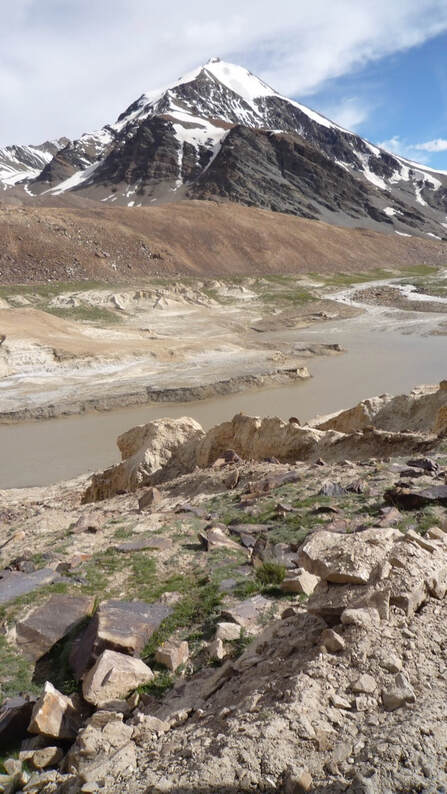
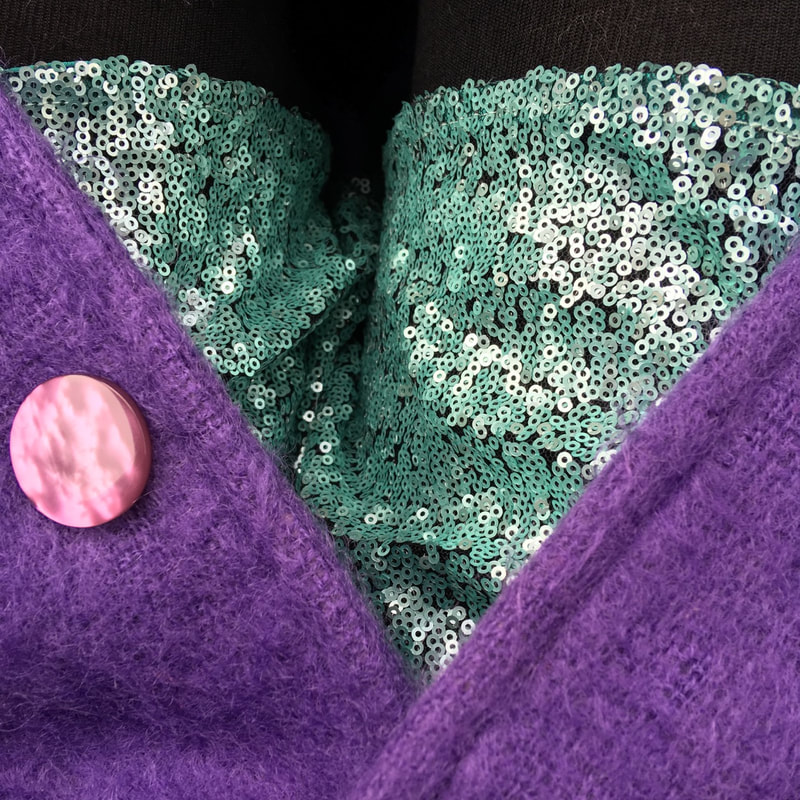
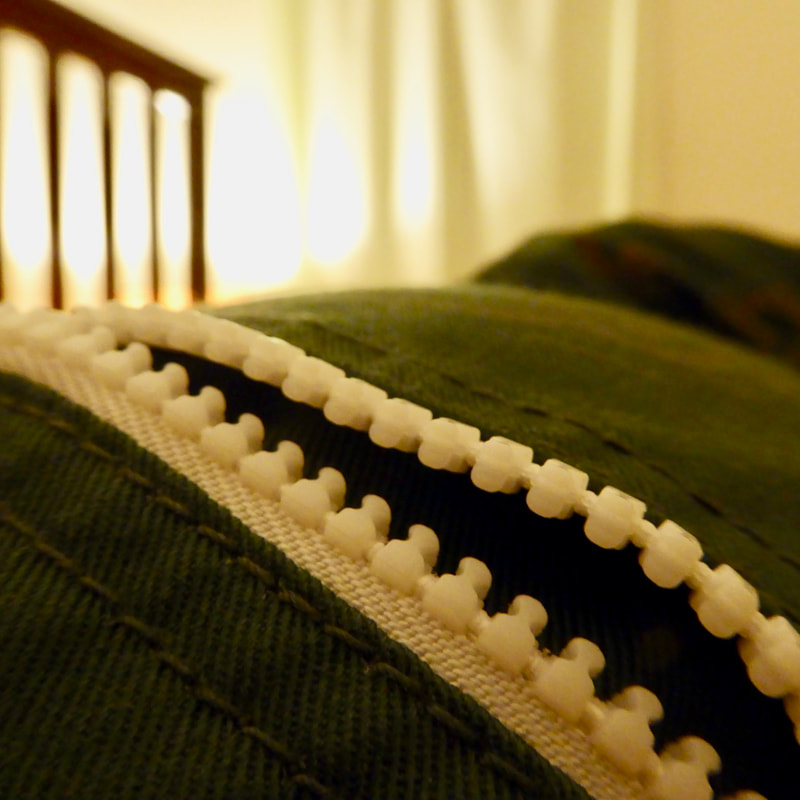
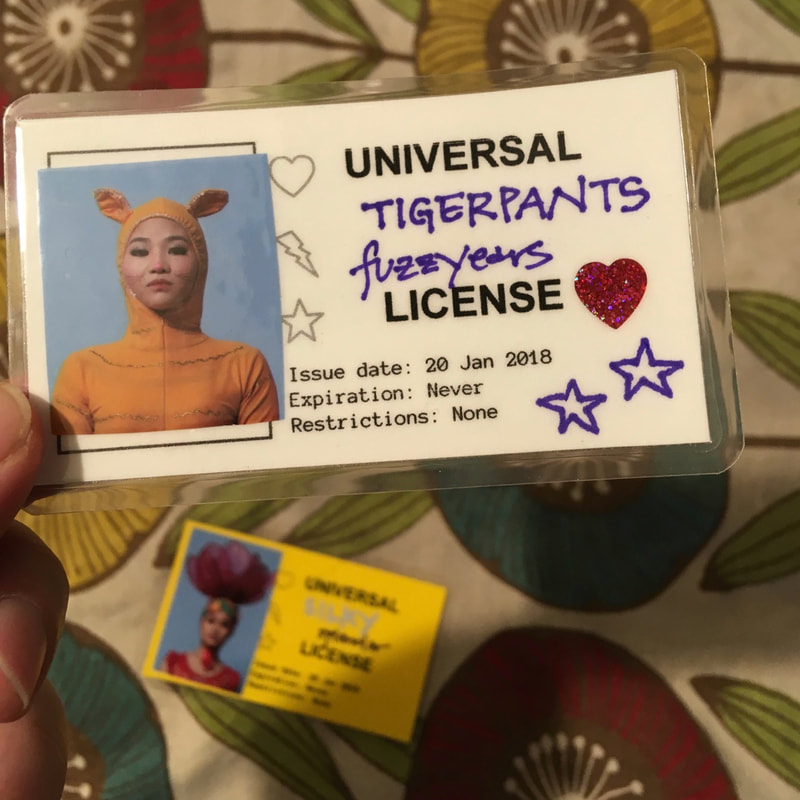

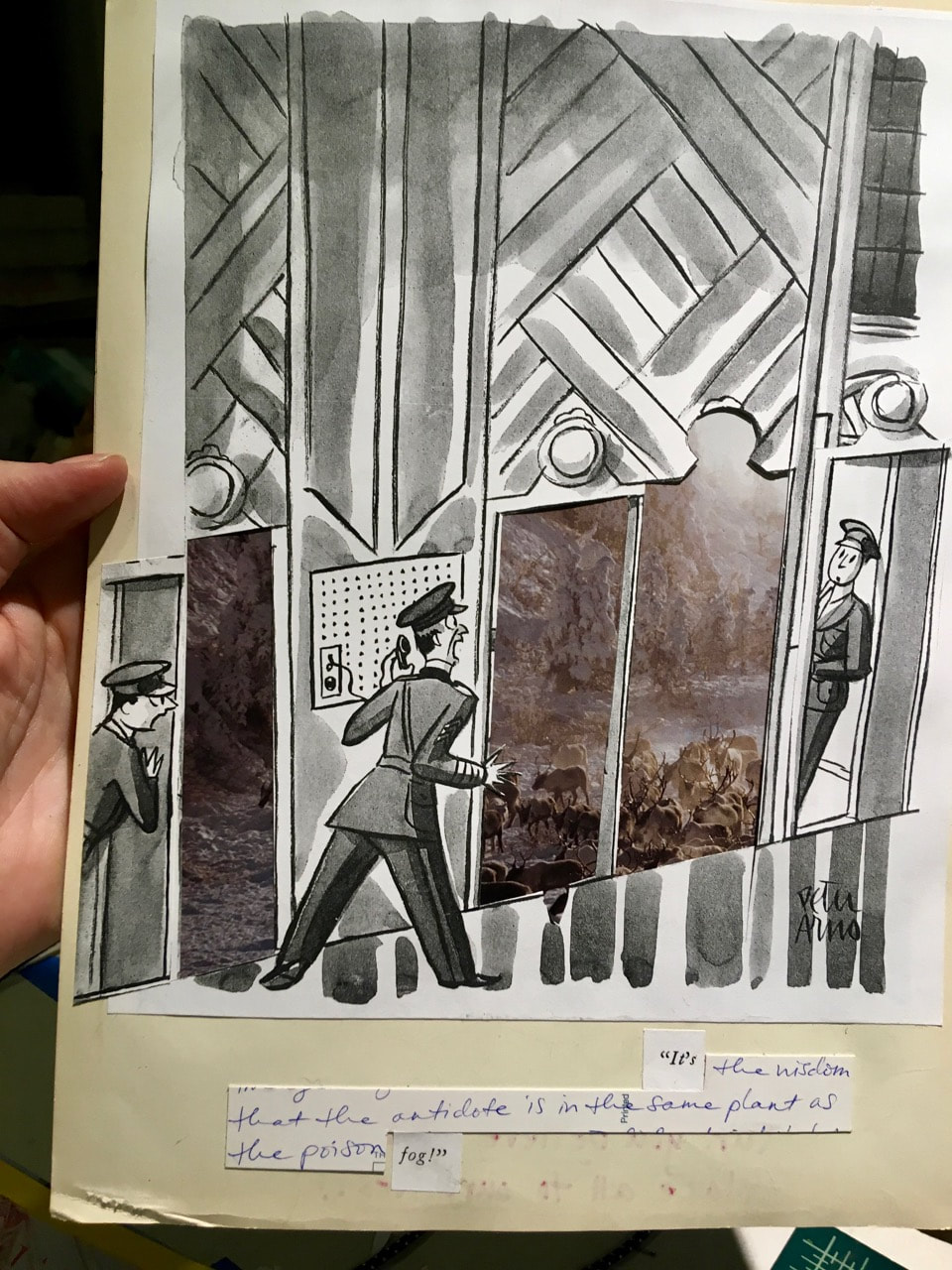
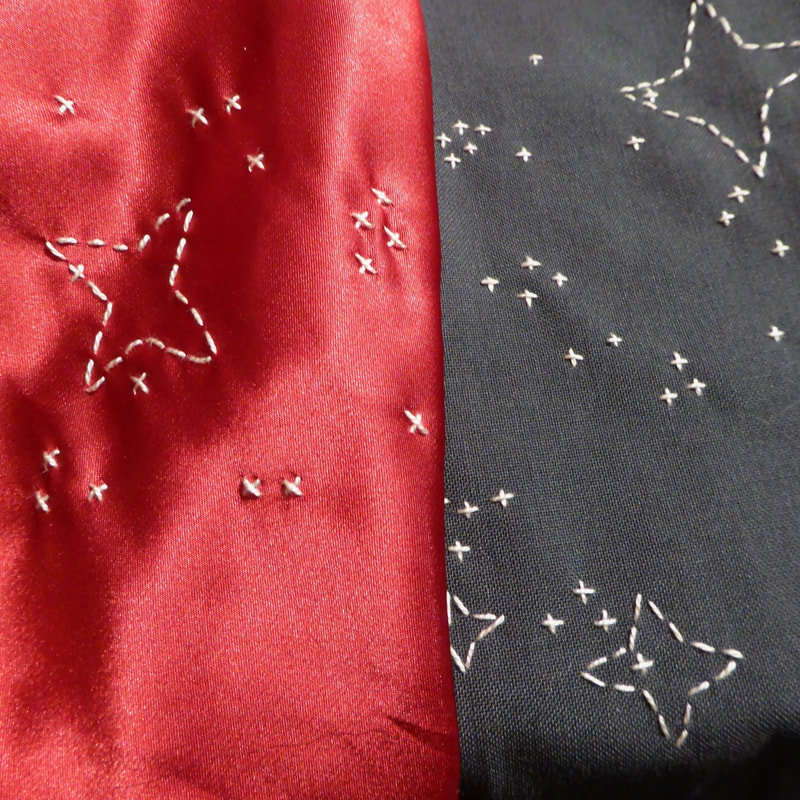
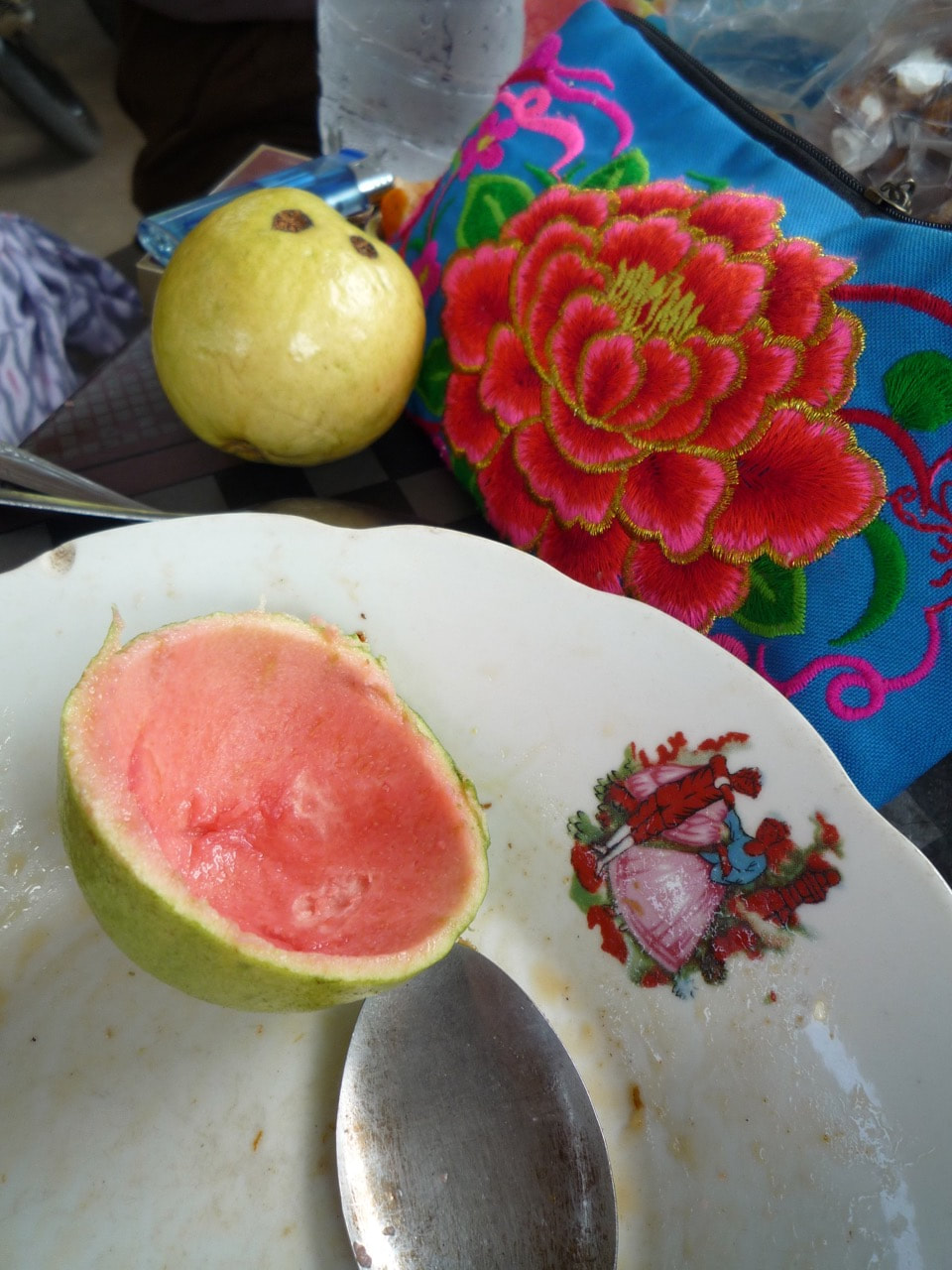
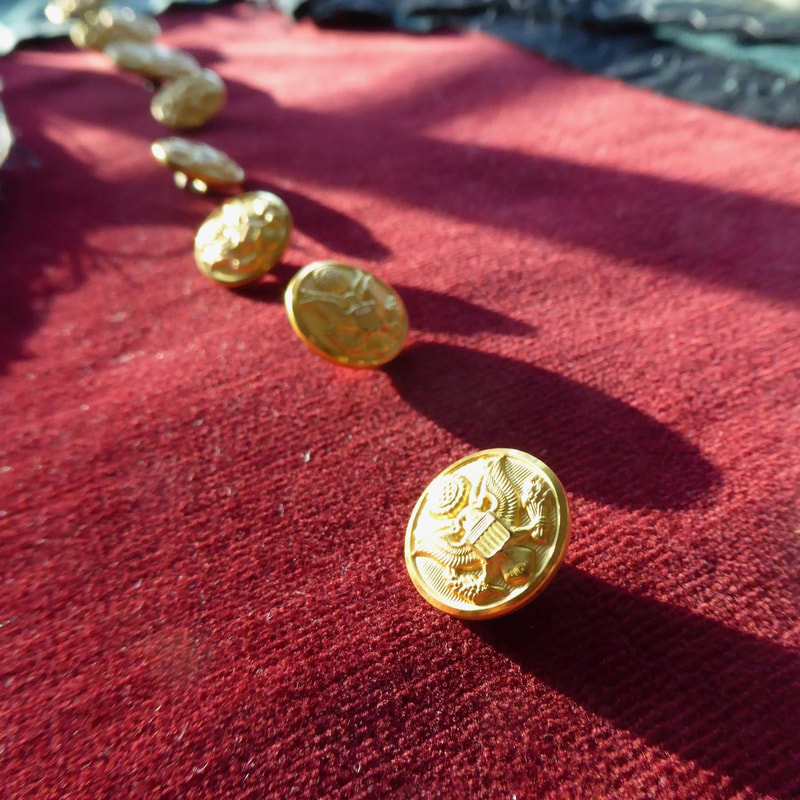

 RSS Feed
RSS Feed